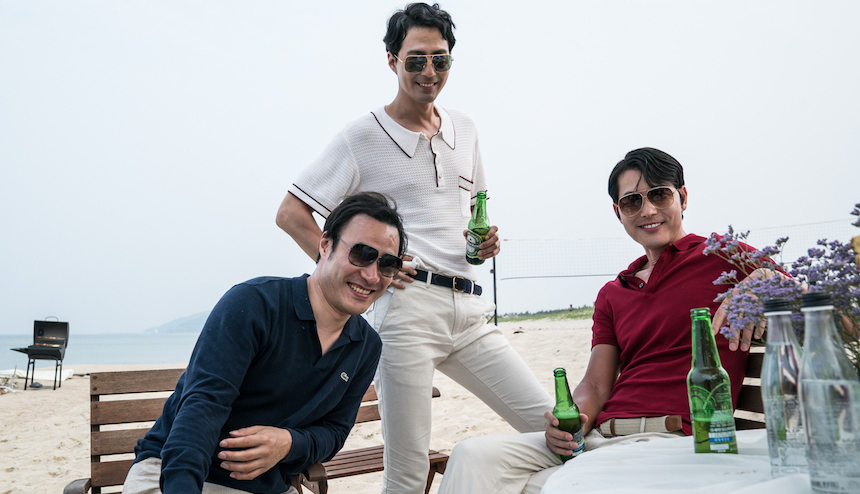Review: THE KING, Korea's Very Own Scorsese Crime Saga

Coming in the midst of an unprecedented political scandal and benefitting from a prime Lunar New Year holiday release date, prosecutor drama The King aims to be the first Korean hit of the year. A glossily entertaining saga with big stars, timely corruption themes and a boatload of Scorsese references, this fourth film from director Han Jae-rim aims for greatness until a finale that ultimately buckles under the weight of its own political ambitions.
Returning for his first film role since A Frozen Flower in 2008, Cho In-sung plays Tae-soo, a handsome country lad who rises to the top of his school ecosystem by way of his fists until he realizes that those with the brains will eventually end up with the real power. Tae-soo hits the books and before long enters the top school in the country and passes the bar exam to become a prosecutor.
Dismayed by the long hours, low pay and lack of respect afforded young, unconnected public defenders, he finds his way into a top clique of prosecutors and under the wing of the powerful and ruthless Kang-sik (Jung Woo-sung). There, he learns that information is power and experiences the perks of success through several administration changes.
The King starts with a bang, and by dint of its snappy editing, sleek visuals and colorful characters, the film motors along through an unusually swift 135 minutes, jumping from year to year as Tae-su's voiceover guides us into a corrupt profession and through tumultuous political transitions. The formula is an effective one, but Han's script owes a great deal of its form to Martin Scorsese, whose works Goodfellas and The Wolf of Wall Street frequently come to mind. The similarities extend well beyond influence, but when a package is as coolly and professionally delivered as this one, it's hard to complain.
That said, when the film disembarks from the Scorsese train to explore more local territory in its last act or so, the wheels threaten to come off. Several characters are built up only to appear sporadically while many plot strands reach their finish lines in a perfunctory manner. In its own home stretch, the main narrative leans on a familiar Korean narrative trope and seems to contradict itself in an attempt to expose the real life corruption that runs rampant through public offices.
Following his relationship drama Rules of Dating, the gangster tale The Show Must Go On and the period drama The Face Reader, director Han returns through yet another genre, but The King is also by far his most ambitious film. Through the eyes of on ambitious young man over a 20 year period, Han's story covers many aspects of Korean society, shuttling back and forth between the glitz of Central Seoul and the parochial countryside, from the halls of power to the nearby underworld, and just about everywhere in between. Han gives familiar scenarios a new lease on life through his tight command of the film's visual sheen, tightening scenes with stylish editing techniques and a camera that moves frequently but with purpose.
While he's no Leonardo DiCaprio or Ray Liotta, Cho In-sung ably handles the long-gestating transitions in his character, much like he did in A Dirty Carnival. Jung Woo-sung, seen just a few months ago in the pitch black Asura: The City of Madness, cuts a large figure as Kang-sik. But, unlike, say, Robert De Niro, he isn't called upon to do more than breathe life into his attractive antagonist. The reliable Bae Sung-woo rounds out the trio of prosecutors as the Joe Pesci of the piece, but without the crazy.
Korean viewers may get a jolt from seeing old footage of the impeachment of President Roh Moo-hyun, particularly as the current Korean president, seen as an assemblywoman in the archival videos clips, now awaits a supreme court decision after her own impeachment vote. The King is clearly divided by the four presidential terms its narrative spans, yet it loses its political bite during the last of these, avoiding any noticeable stance on the conservative Lee Myung-bak administration. Foreign viewers may not latch on to the subtleties of the political content, but as corruption is hardly unique to Korea, it hardly poses a significant obstacle.
Spotty last reel aside, The King is thrilling stuff from Han, who proves his skill once again with an engrossing saga with plenty to offer.







